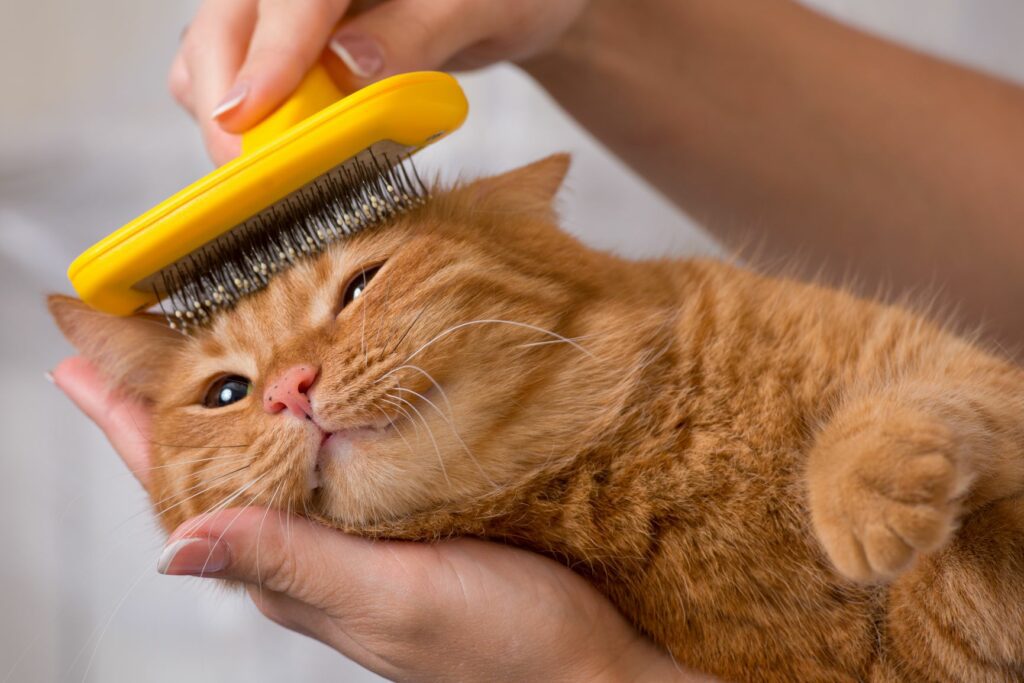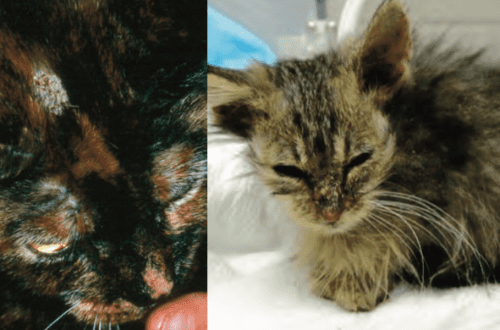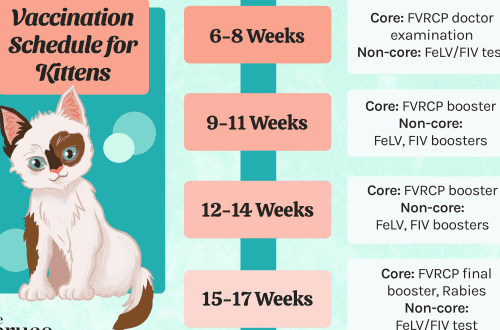
How to keep your cat’s coat healthy
Contents
From a healthy kitten to a happy cat
Every new kitten owner wants their little furry friend to grow up to be a healthy, happy cat. Therefore, it is important that you play your part in keeping your kitten healthy. For example, proper feeding and completion of the first stage of vaccination are necessary for its normal development. Also, do not forget to bring your pet regularly to the veterinarian for check-ups in the first year. This way you can be sure that the kitten is growing and developing properly.
Maintaining ideal coat condition and healthy skin
Proper nutrition, regular brushing and bathing, and comfortable living conditions should contribute to the health of your pet’s coat and skin. But, unfortunately, kittens (like adult cats) sometimes suffer from skin diseases. Their coat becomes dull and falls out, and their skin may become red, itchy, and sore. The causes of these diseases are varied: it can be food sensitivities, insect bites, allergies, mites, parasites, or even excessive brushing.
Fleas
Some kittens develop an allergy to flea saliva – this is known as “flea bite hypersensitivity” or flea allergy. If your kitten has this condition, they will develop an itchy, crusted rash on their skin. And just one flea bite can cause a condition known as millet dermatitis, with the same unpleasant symptoms. If you notice any of these symptoms in your kitten, contact your veterinarian immediately for advice on how to treat the irritation and, most importantly, how to get rid of fleas.
Ringworm
No, ringworm is not a parasite, it is the name given to a fungal disease that appears on a kitten’s skin as a circular rash. Ringworm can be passed from cat to cat and also from cat to person. It is not easy to recognize, so if you have even the slightest suspicion that your kitten has skin or coat problems, contact your veterinarian.
Your kitten’s ears
Regular, careful handling of the kitten, and especially its ears, will allow you to check them for diseases in a timely manner without alarming the kitten. And if he has problems, you will find them quickly enough. Firstly, his ear will be drooping, and he is also likely to shake his head quite often. In addition, if you notice gray or dark brown dry or waxy formations on the ear, this is a sure sign of the appearance of ticks. Fortunately, a veterinarian can easily cure this.
Your kitten’s eyes
The kitten’s eyes should be clean and bright, with no discharge. Sticky eyes may indicate an infection. Regularly clean the eyes of your mustachioed tabby using a warm saline solution (about one teaspoon of salt per half liter of water). Since the infection can be caused by so many things, it’s best to take your kitten to the veterinarian.
Aaaapchhi!
Sneezing can be a sign of an upper respiratory illness, often referred to as “cat flu”, among other things, so if you notice anything more than occasional sneezing, such as snot, it’s a good idea to visit your veterinarian.
But at the same time, it is worth remembering that sneezing can be the result of inhaling pollen, a blade of grass or grass seeds, dust, sprayed household chemicals or cigarette smoke.





